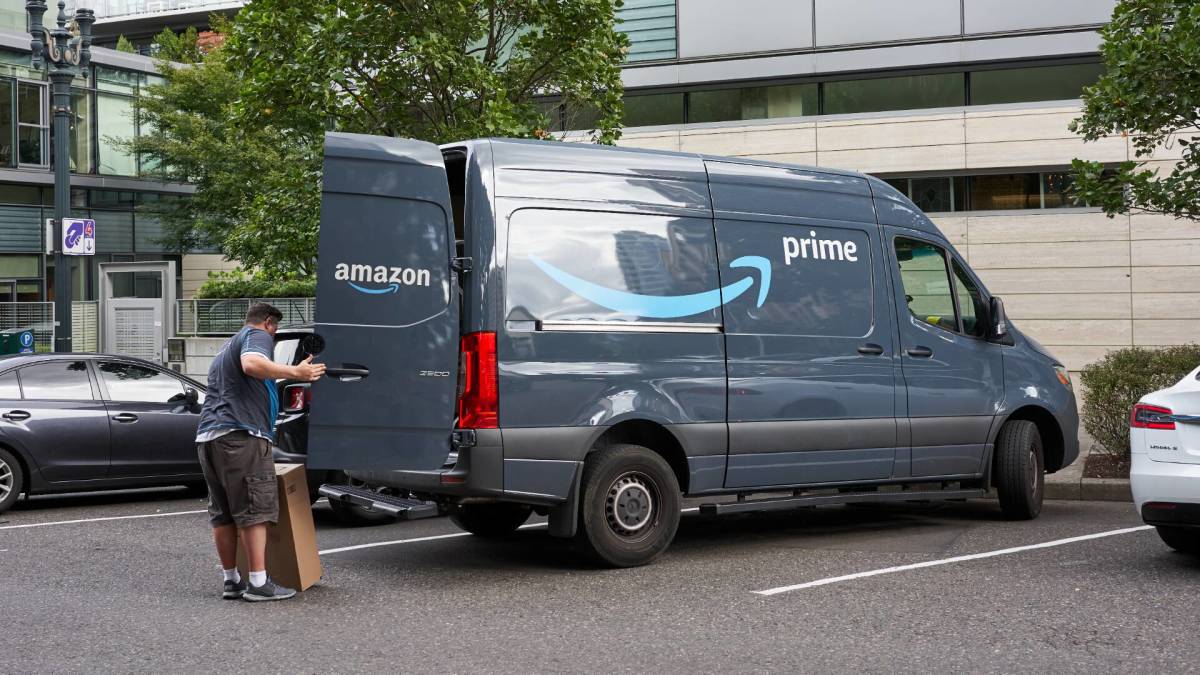People who don’t work for Amazon might see a headline about the company’s employment practices and think: Who cares?
Employers that are smaller than Amazon, or in a different sector, might think the same thing.
But if history is a guide, Amazon’s workplace trends often influence how other businesses operate.
For example, when Amazon announced in 2024 that it would require a five-day in-office schedule, dozens of companies followed suit, including Salesforce, Dell, and JPMorgan Chase. The company also reintroduced assigned seating, and has made moves to flatten management layers to boost speed and culture.
Amazon is a major American employer:
- Amazon employs 1.1 million in the U.S and about 1.58 million worldwide.
Source: Red Stag Fulfillment? - 1 out of every 135 employed Americans works for Amazon.
Source: Business Insider - Amazon plans to hire around 250,000 seasonal workers for the holidays in 2025 (roughly the same as last year). ?
Source: Amazon
More recently, Amazon has started requiring employees to demonstrate AI knowledge for promotions. Other major employers including Ikea, MasterCard, and JPMorgan Chase soon followed suit, as did smaller companies such as Shopify and Duolingo.
Similarly, several companies — such as Microsoft, Salesforce, Meta, Oracle, and Klarna — are adopting Amazon’s approach by using AI to replace corporate roles.
And Amazon has long used robots and other automation tools to eliminate slow processes, something UPS and Target have also tried.
Now Amazon is facing a class action complaint that brings with it new scrutiny of the company’s HR practices. This case could ultimately influence broader employment standards across the logistics, retail, and tech industries.

Shutterstock
Amazon facing class action lawsuit over workplace policy
Amazon is facing a proposed class action lawsuit in federal court, alleging that its warehouse workplace attendance policies systematically punish employees with disabilities and discourage legally protected requests for time off, even under the Americans with Disabilities Act (ADA) and New York state laws.
This case — filed by Cayla Lyster of upstate New York — argues Amazon’s automated attendance system subjects workers to discipline and the threat of termination simply for needing medical accommodation or taking essential leave, raising significant concerns about corporate labor practices at America’s second-largest private employer. Lyster has been an Amazon employee since 2022.
Related: AT&T data breach class action settlement could pay customers $7,500
The suit alleges Amazon has “maintained a punitive absence control system under which automated systems track employee attendance, and then automatically impose discipline up to and including termination.”
Under the system, the complaint continues, employees live under constant threat of punishment if they “get sick or injured or need time off to care for a family member.”
More on retail and bankruptcy:
- Walmart store closing, auctioning off laptops and flat screen TVs
- Home Depot CEO soundWalmart store closing, auctioning off laptops and flat screen TVs – TheStreets the alarm on a growing problem
- Famous restaurant files for Chapter 11 bankruptcy
Amazon has strongly denied these allegations, stating it is committed to supporting its workforce through a dedicated accommodations team and individualized review of employee requests.
?”Claims that we don’t follow federal and state laws like the Americans with Disabilities Act and New York State Human Rights Law (NYSHRL) are simply not true,” the company said. “Ensuring the health and well-being of our employees is our top priority, and we’re committed to providing a safe and supportive environment for everyone,” Amazon told CBS News.
The outcome of the case could affect other companies:
- Disability and leave policies are pivotal for an inclusive workforce — what Amazon does may serve as a framework or a warning for other employers.?
- Legal wins for plaintiffs could set new standards, making companies nationwide accountable for fairer, more transparent treatment of employee accommodations.
- Investor and consumer pressure is mounting for companies to align growth with responsibility, especially those with scale, like Amazon.
National nonprofit legal advocacy organization A Better Balance represents Lyster.
“Our lawsuit tells Ms. Lyster’s story as well as a much bigger story about Amazon’s illegal treatment of its hourly warehouse workers,” A Better Balance President Inimai Chettiar said in a statement.
Amazon’s financial power
Amazon is one of the world’s most valuable companies and a powerful employer:
- The company posted Q3 2025 revenues of $180.2 billion, with a market cap reaching roughly $2.5 trillion this year.?
Source: Amazon Investor Relations - Amazon makes $48,468 in profit for every employee.
Source: Stock Analysis - Around 75% of Amazon’s workforce are full time, including corporate staff, warehouse associates, and delivery personnel working 40+ hours weekly with full benefits.
Source: Red Stag Fulfillment - Minimum starting wage at Amazon stands at $19/hour for seasonal jobs.
Source: Amazon
“Amazon has devised policies that ensure that employees live under the constant threat of punishment, risking their health and safety to come to work every day instead of raising their legal rights,” said Chettiar.
“These workers shouldn’t ever need to choose between their safety and their paycheck. And no company — not even Amazon — is above the law.”
Related: Amazon beats Target and Walmart for title no retailer wants
#Amazon #lawsuit #warning #employers